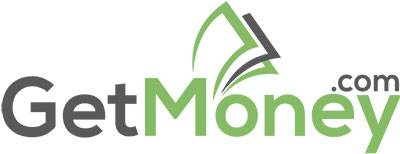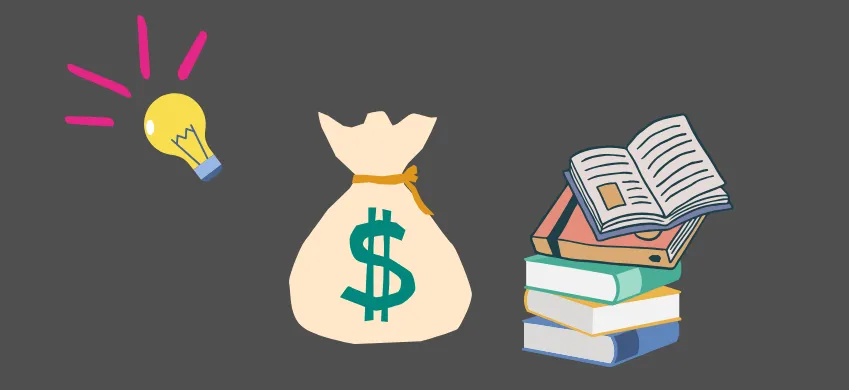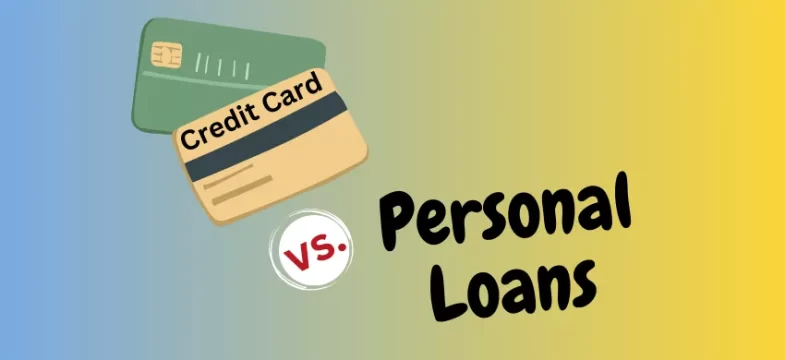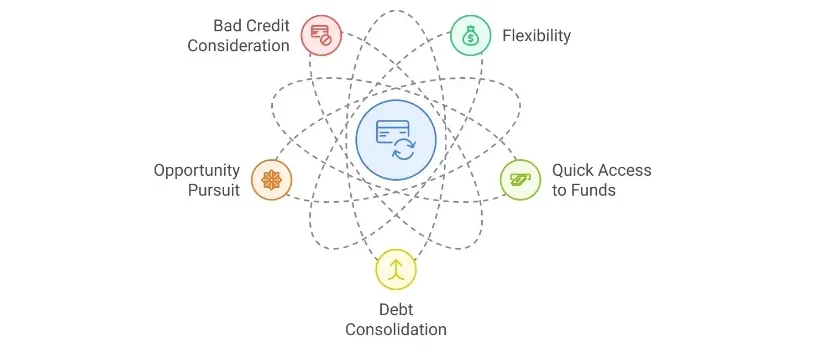Online Personal Loans
Whether you have excellent credit or are rebuilding, our streamlined process makes it easy to get the money you need
![]() All Credits Welcomed
All Credits Welcomed
![]() Competitive Rates
Competitive Rates
![]() Get Money Quickly
Get Money Quickly

Why Online Personal Loans Make Sense
- No Upfront Fees
- 5.99% – 35.99%
- $200 to $35,000
- Simple Forms
- Secure Processing
- All Credits Welcomed
How To Get A Personal Loan Online
1
Request A Loan
No Cost No Obligations
2
Quick Decision
It’s Fast
3
Get Money
If Approved
Need A Fast Online Personal Loan? GetMoney.com is your #1 source
Get an Easy Online Personal Loan with GetMoney.com
GetMoney.com is your one-stop shop for quick and easy personal loans. We’ve simplified the borrowing process, leveraging the latest technology to connect you with a lender who meets your needs. Just fill out our short online form, and we’ll do the rest.
Experience the GetMoney.com difference:
- Fast Online Loans: Personal loans fund in as little as one business day.
- Simple Process: No mountains of paperwork or endless phone calls. Just a quick online form.
- Wide Network: We connect you with a variety of lenders who of the preferred terms for your situation.
- Secure and Reliable: We take your privacy seriously and use the latest security measures to protect your information.
- Ready to get started? Just click the button below to complete our short online form. There’s no obligation, so why wait?
Select Your Personal Loan
How To Get A Good Personal Loan
Step 1: Know your credit score.
Before you start searching for lenders, it’s crucial to understand your credit score and what it means. This three-digit number (typically ranging from 300 to 850) tells lenders how risky it is to lend you money. Aim for a score of 670 or above to qualify for the best interest rates and loan terms.
Step 2: Shop around and compare lenders.
Don’t just go with the first lender you find. Take the time to compare rates, terms, and fees from several different lenders.
Step 3: Consider your loan amount and purpose.
How much money do you need, and what will you be using it for? Knowing your loan amount and purpose will help you narrow down your search to lenders who offer loans that fit your specific needs.
Step 4: Get pre-qualified.
Many lenders offer pre-qualification, which allows you to see what interest rates and terms you might qualify for without impacting your credit score. This is a great way to get a sense of your options before formally requesting a loan.
Step 5: Choose the right loan offer.
Consider the interest rate, annual percentage rate (APR), loan term, fees, and any other features that are important to you which will impact your monthly payment.
Get a fast personal loan for
• Unexpected Expenses
• Vacations
• Home improvements
• Emergencies
• Medical bills
• For business
• No restrictions on usage
Personal loans are better loans
• Money in as little as 1 business day
• Loan amounts $200 to $35,000
• All credit types welcomed
• Funds directly deposited into your account
• Build stronger credit for the future
Fast Online Personal Loans For All Credits
Online Personal Loans
Online personal loans are small loans from $200 to $35,000 available to individuals looking for quick access to money. Unsecured personal loans do not require collateral, are less restricted, and you could have the money deposited in your account within one business day after you are approved and accept an offer.
A personal loan can be used to pay bills, make purchases, pay for home improvements, pay for school supplies, and everything else.
Personal loan interest rates
Interest rates for online personal loans range between 5.99% and 35.99% depending on your credit, work history, laws and regulations in your state of residence.
Online personal loans are offered at very competitive rates with minimal requirements, faster processing times, and quick access to money. Online personal loans can be processed in as little as one working day.
Personal loan credit requirements
Getting a personal loan with bad credit (less than 630 FICO) isn’t easy. However, it may be possible if your credit decisions demonstrate actions that give lenders some assurance about you as a borrower.
At GetMoney.com, we understand that a less than perfect credit isn’t always your fault. Thus, we work with a large network of lenders and lending partners with flexible guidelines that welcome borrowers of all credit types.
Personal Loan Terms
The terms for the personal loans offered through GetMoney.com are between 90 days and 72 months. The loan terms are determined by your borrower profile and state of residence.
If you are offered a loan, you will have the opportunity to review the terms before accepting a loan. We advise you to read the terms of any loan offer and be sure to understand them thoroughly. If you have any questions, don’t hesitate to ask the lender making the offer.
Are Personal Loans the right loan?
If you need access to quick money, then yes. Online personal loans can fund in as little as one business day.
How long does it take to get approved for personal loans?
Time is money, especially when you need money. Nobody wants to wait weeks for underwriting decisions and a complicated funding process. That’s why we offer a fast, secure, and convenient alternative. Fast online personal loans can fund in as little as one business day.
Unsecured Personal Loans Online
An unsecured loan is a loan granted based on credit ratings, employment, income, and other non asset-based factors. Unlike mortgages that are secured against real property, unsecured loan lenders don’t have recourse in case of a default and must accept the loss.
Loan amounts for unsecured personal loans range between $200 and $35,000 with a fixed interest rate for the term of the loan. Unsecured personal loans are often used for unexpected expenses, vacations, bills, buying a new car, home improvements, and other major purchases.
Are unsecured personal loans a good loan?
If you don’t have collateral to secure a loan against and need quick access to money, unsecured personal loans are a good loan. You can request a loan online and the funds for approved loans can be deposited in your account in as little as one business day.
Interest rates for unsecured personal loans
Interest rates for unsecured personal loans range between 5.99% and 35.99%. The interest rate is determined by several factors such as loan amount, credit history, state of residence, employment, etc.
Online personal loan lenders must provide detailed information about loan terms and conditions. We recommend that you carefully review the terms of any loan offer and make sure you understand the terms before accepting a loan.
Credit requirements for unsecured personal loans
Some borrowers have excellent credit, some have bad credit, and others have OK credit scores. Sometimes bad credit and OK credit isn’t really your fault, and other factors should be taken into account when evaluating your credit risk. Online personal loans have flexible guidelines which don’t require excellent credit.
Unsecured personal loan terms
The terms for unsecured personal loans are between 90 days and 72 months. Be sure to review and understand the terms of the loan you are offered. The terms will vary based on guidelines for your state of residence.
How long does it take to get approved for unsecured personal loans
Unsecured personal loans are quick. Approved loans can fund in as little as one business day.
Best Place for Getting Personal Loans
The best place to get personal loans online
You have a lot of choices to choose from. We recommend that you work with a trusted source. GetMoney.com has been serving you since 2003 and is an excellent choice.
Personal Loans near me
With the advancement of technology, great personal loans are a few clicks away. Our personal loan requests are simple, secure, and only take a few minutes to complete.
Personal loan same day
Online personal loans can fund in as little as one business day. That means, if your loan is approved, the money could be electronically deposited in your account within one business day.
Online personal loan with bad credit
Anyone can experience financial hardship or a mishap leading to a lower credit score. Something as simple as a missed credit card payment can significantly lower your credit score. Most traditional personal loan lenders consider a credit score under 620 as bad credit. However, online personal loan lenders are more flexible and offer loans to all credit types.
Regardless of the reason for the less than ideal credit rating, at GetMoney.com, we try to help everyone secure a personal loan by working with a big network where the lenders welcome borrowers of all credit types.
The personal loan lenders in our network offer some of the best personal loans online. To see if and how much you qualify for, request a personal loan today.
Personal Loans For Rent and Mortgage
It’s the end of the month and you are short on rent or your mortgage! Help is available. A fast personal loan could help cover the shortage in as little as one working day.
So, if you are short on cash and need a loan ASAP, request a personal loan today. All credit types are welcomed.
Personal Loan For Debt Consolidation
Are you tired of making multiple payments on credit cards, loans, other monthly expenses? There is a solution, a debt consolidation loan.
A debt consolidation loan is used for paying off multiple accounts, leaving you with one monthly payment vs. all the accounts you paid off.
Another benefit of a debt consolidation loan could be a better credit score. And a higher credit score can result in better financing options in the future.
If you are making multiple payments on multiple accounts, request a debt consolidation loan and get on the right path.
Personal Loan For Emergency
If you are experiencing an emergency of any kind and need access to money quickly, you can request a personal loan today. Getting online personal loans for emergency expenses are simple and one of the best options because you could have the money in as little as one business day.
Regardless of the emergency situation, during high-stress times we don’t have time to wait for traditional underwritings which could take days if not more. Fast online personal loans are easier and faster.
Personal Loans For Paying Taxes
If you owe the IRS money, we advise you to contact a licensed accountant to review your options. It might be best to pay the taxes right away, or maybe make arrangements for installment payments. Either way, the IRS is not one to put on hold.
If you need money to pay your taxes or back taxes ASAP, consider getting a personal loan.
Online personal loans are quick and can fund in as little as one working day.
Personal Loan For Business
Being self-employed and operating a small business is no easy task. There are a lot of problems with employees, vendors, customers, and clients that you have to deal with.
The worst problem of all is cash flow shortages. Some times a business owner needs cash for one or two days, and without it, the business could go sideways.
Fortunately, there is a solution. A quick personal loans online for business.
Online Personal loans for business can give you access to the money you need to keep the business afloat.
If you’ve been in business for at least six months and require a large sum of cash ($4,000+), consider a quick business loan .
Personal Loans For Home Improvement
The best feeling after a long hard day at work is going home to a fresh-looking, newly renovated, welcoming home where everything works.
To get that feeling, one may require something as little as a paint job to redoing everything in the kitchen or even fixing the plumbing. Either way, something always needs to be done around the house. If you need to get a loan to cover your home improvement expenses, consider a quick online personal loan.
Online personal loans are simple and don’t require perfect credit. Traditional lenders look at credit scores under 630 as bad credit which makes traditional loans a lot harder to get.
Online personal lenders are more understanding and offer loans with more flexible guidelines. To see what you qualify for and how much you can spend on the next paint job or dish-washing machine, request a loan today.
Personal Loan With Cosigner
Online personal loans are small loans (up to $35,000) offered to most credit types without a co-signer.
The guidelines of lenders in our network welcome all credit types. An important qualifying factor for any loan is the borrower’s ability to repay the loan. If you are employed and feel strongly about your ability to repay a short term personal loan, request an online loan. The forms are short, quick, and hassle-free.
Personal Loan For Education
Being a student is fantastic, except when you run out of money and tuition is due. Or even worse, you have to pay for new books and the test is next week. Fortunately, there is something you can do, get a quick personal loan online.
Online personal loans have higher interest rates than traditional student loans and are more costly. But when you don’t have any other options available, a quick personal loan could be the lifeline you are looking for.
Keep in mind personal loans are not for living the fun life while getting an education; they are for covering absolutely necessary expenses. To evaluate your options, request a personal loan to see if it makes sense for you.
LATEST FROM BLOG
See our latest articles, recent news and local events




